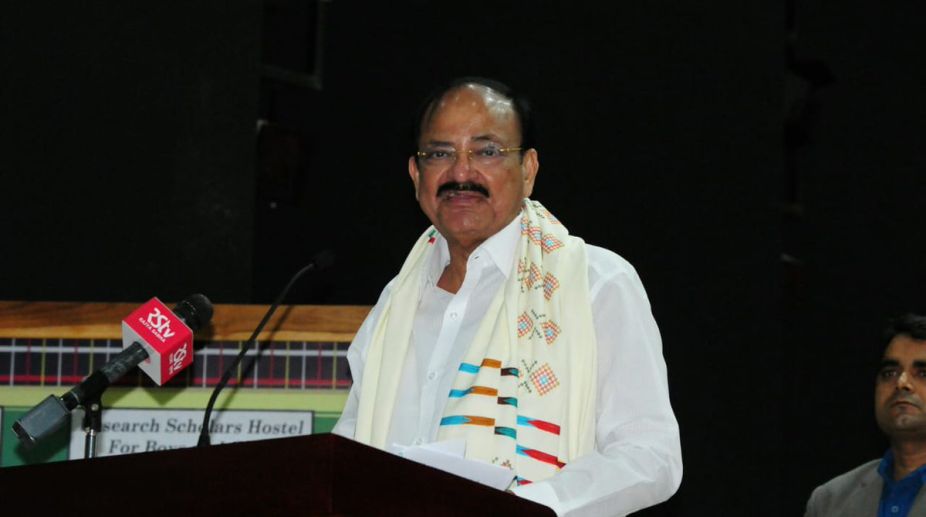On the occasion of National Press Day on Monday, Vice-President M Venkaiah Naidu at a webinar on the ‘Role of media during Covid19’ organised by the Press Council of India gave a rather routine speech, one that the uncharitable might even term platitudinous. Yet, it was required.If for nothing else, then to remind both purveyors and consumers of information about what ought to be the non-negotiables.
Some of the statements made by Naidu are unexceptionable; others need amplification and/or clarification. “Any attack on the freedom of the Press is detrimental to the national interest, democracy cannot survive without a free and fearless media… a robust and vibrant media is as important as an independent judiciary in consolidating democracy and strengthening Constitutional rule of law,” the Vice-President said.
He was spot on. He may, however, have been guilty of over-enthusiasm when he iterated that the Press in India has “always been in the vanguard of protecting and strengthening the foundations of democracy” ~ the cravenness of a section of media during the Emergency is the most prominent but by no means sole example to the contrary.
But that’s forgivable, perhaps, given the occasion. Describing journalism as a “pious mission”, on the other hand, does more harm than good to the profession. The phrase possibly accurately describes what was termed the “nationalist Press” during British colonial rule but that’s about it. Indian journalism flourished and thrived when not piousness but two different ‘P’s were dominant ~ public interest and profit. That is because only a going concern has the luxury to be concerned about quality and fairness, aka the public interest.
Naidu also urged the media to avoid sensationalism and curb the tendency to mix news with views. Excellent advice on both counts. A line on the role of social media and the transnational corporates that own its major platforms being a law unto themselves would not have been out of place in this context, given it is primarily to compete against the fact-fictiondefamation funnelling social media does so well that media organisations have resorted to the tactics the Vice-President would have them avoid.
It is also not unproblematic to laud media, as Mr Naidu did, “for playing an outstanding role in empowering the people and furthering national interest”. It is the job of the institutions of the State to empower the people and the government of the day to further the national interest.
The Press works best as an informed interventionist in public discourse not as a representative of the people. For the latter, we have universal adult franchise. Where there can be no disagreement whatsoever, is in endorsing the VicePresident’s fulsome praise for journalists who have quite literally risked their lives as frontline warriors during Covid-19. The courage shown by reporters in ensuring non-stop coverage of all happenings unmindful of grave risks has been truly magnificent.











